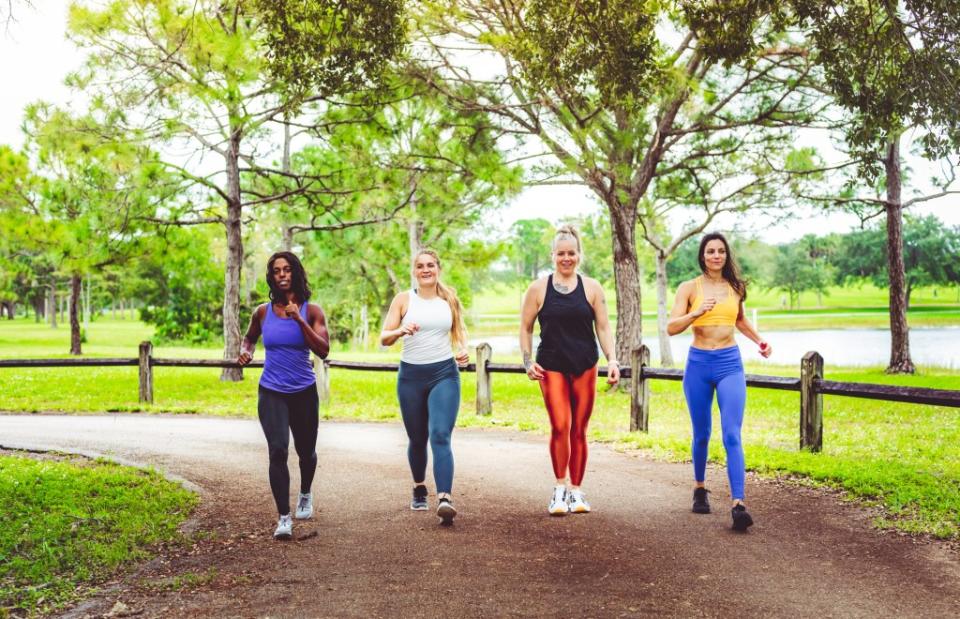Doing this makes you more likely to succeed at a fitness goal

Better together?
A supportive friend may pave the way when it comes to achieving a goal, suggests recent research.
Those who paired their workouts with a pal were more likely to show up and pump up than those who chose to go solo, according to researchers at Berkeley University who studied gym attendance.
The experiment, documented in Management Science, was conducted using two groups and a cash incentive. All participants were paired with a friend and offered a $1 Amazon gift card for each gym visit. One group received a gift card every time they went to the gym while the second group only received the dollar if they went with their friend.

Accountability in action
The second group went to the gym with their partner twice as often as the first group and increased their overall gym visits by 35%.
“Despite adding the friction of working with another person, we saw people becoming more motivated and more likely to go,” Rachel Gershon, an assistant professor of marketing at Berkeley and study author, said in a release. “This illuminates how social incentives, which aren’t always taken into consideration, can help people overcome other barriers that stand in their way.”
Gershon and her team concluded that two benefits made the buddy system more bankable. First, people enjoyed the social aspect of going to the gym with a friend, making future visits something to look forward to. Second, meeting a friend at the gym gave those participants a sense of accountability that led to consistent follow-through.

“People feel responsible to their friends, as they wanted them to get the reward, but they may also have reputational concerns that their friends would think less of them if they didn’t follow through,” said Gershon.
Shame is the great motivator, folks.
Gershon notes how accountability and social engagement can bolster bonds and enthusiasm in the workplace. “Companies that want to increase employee engagement with skills training, might consider using a joint-incentive program. This could boost participation while simultaneously fortifying interpersonal bonds in the workplace.”

Social benefits of the buddy system
Gershon’s study confirms what anyone who has ever eaten junk food or dated a musician can attest to: we don’t always know what is good for us.
When surveyed, more than 80% of Gershon’s participants said they would prefer not to coordinate their gym visits with another person. This feedback reveals that people, concerned with the inconvenience or perceived disadvantage of a paired activity, may overlook the benefits of stronger bonds and increased motivation it provides.
When looking at both partners in a pair, those who exercised more frequently before the experiment saw an increase in gym visits, but the partners less inclined to exercise pre-incentive saw an even greater hike in attendance.
Gershon sees larger ramifications for her findings, specifically how accountability and the addition of a social dimension can promote follow-through and strengthen referrals within the marketing world.
“There are all sorts of contexts where people are trying to start a new hobby, a new exercise routine, and companies can encourage them through social networks. This work shows that referrals may be a way for companies to not only engage additional customers but to also increase the motivation of current customers.”


